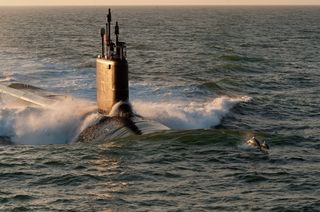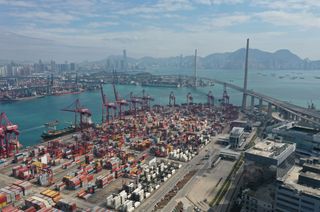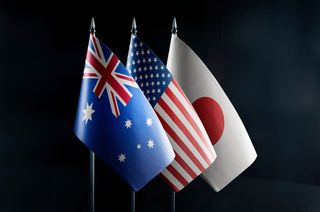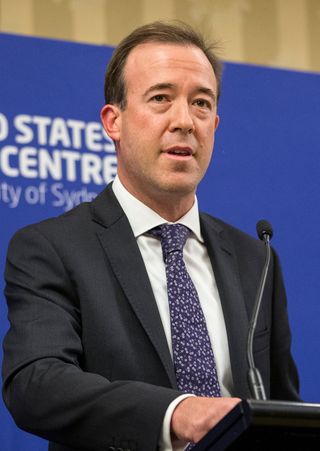The Australian
By James Curran.
THE Australian parliament was not in session at the time of John F. Kennedy's assassination, 50 years ago today. So the official eulogies from national leaders were held over until early the following year. Only prime minister Robert Menzies and Labor leader Arthur Calwell spoke. The speeches were short, almost minimal, and of varying quality.
On this occasion, Calwell's eloquence far surpassed that of his long-time opponent. ''A great and good man died and a generous and noble heart ceased to beat,'' he said, when the US president ''fell before an assassin's bullet'' in Dallas. ''When that death comes with the meaninglessness of assassination, then its sadness takes on a horror never to be obliterated from our memories.''
Calwell praised Kennedy's handling of the Cuban missile crisis in 1962 and his ''vigorous warnings of the futility of nuclear war'', but he also took the long view, linking Abraham Lincoln to Kennedy, connecting Lincoln's carriage of the nation during the US Civil War to Kennedy's efforts to ''break down the barriers of racial discrimination''. It had stirred animosities, but he had ''won a place in the hearts of his fellow citizens and of freedom-loving people everywhere''.
The Labor leader also paid tribute to the ''brave and gracious'' Jacqueline Kennedy. The ''days of sorrow have been more difficult for her than for anyone else, but she was blessed, as few women have been, to give her hero husband the comfort of her arms in the hour of his death''.
Menzies' effort on this occasion was brief and more biographical. But he did add that Kennedy ''was of great significance to us in Australia because in a simple, unaffected and inquiring way he had a feeling of friendship for Australia and a feeling of interest in this country which I am bound to say I have never known quite equalled by his predecessors. He was a friend of ours.''
What hung over both speeches, of course, was the inevitable hypothetical of what Kennedy might have achieved had he lived. Since that day in November 1963, such speculation has spawned a veritable canon of works. Coupled with the Arthurian romance of Camelot, there remains a certain difficulty in getting to the Kennedy essence. As Jill Abramson recently noted in the New York Times, his martyrdom has ''obscured much about the man and his accomplishments''.
For Australians, too, there is a need to peer behind the Kennedy myths. Many will remember the soaring rhetoric of the inaugural address, the cold sweat of the Cuban missile crisis, the shock of the news from Dallas.
But how much does the public know about the brutal lesson Kennedy gave Australian leaders in power politics and geopolitical realities? In the four months before his death, the president sent more than a few Australians out of the Oval Office with their tails very firmly between their legs and saddled with grave doubts about the real meaning of the Australian-American alliance.
These anxieties would have profound consequences for Australian foreign policy in Southeast Asia across the next decade.
From the moment ANZUS was signed in 1951, Australian politicians and policymakers lived in a state of ''chronic unease'' -- the phrase is historian David McLean's -- concerning the level and nature of America's commitment under the terms of the treaty.
During the Kennedy presidency these concerns faced their first acid test.
The trigger was the US reaction to Indonesian president Sukarno's increasing aggression and bellicosity in the early 1960s. The Americans had already told the Menzies government it supported Sukarno's desire to acquire the Dutch-held territory of West New Guinea, a move Australia had opposed vigorously for much of the previous decade. The White House feared if Sukarno did not get his way it would strengthen the hand of the Indonesian Communist Party, then the third largest in the world outside Moscow and Peking (now Beijing).
But as one of Kennedy's advisers, Bob ''Blowtorch'' Komer, put it, ''it was worth sacrificing a few thousand square miles of cannibal land'' to keep Indonesia out of the communist camp. The Australian government was informed of the settlement, which effectively guaranteed the Indonesian takeover of the territory, only after all the deals had been done.
Almost exactly at the time Indonesia took possession of West New Guinea, Sukarno began a policy of ''Confrontation'' towards the new Malaysian Federation, believing it was a Western imperialist plot to encircle Indonesia.
Under pressure from the British to send troops in response to Indonesia's militant stand, the Australians were initially loath to commit to a conflict that might well make a long-term enemy out of its nearest neighbour. Accordingly, they approached Washington to ask whether Australia could rely on the protection of the ANZUS treaty if its territory or forces came under attack from Indonesia.
But by the end of 1963 the Americans already had 10,000 troops in South Vietnam. The US had no desire to become involved in another guerilla war in a region that was of only marginal importance in its global confrontation with the Sino-Soviet bloc.
When the assistant secretary of state for East Asia, Averell Harriman, visited Australia in June 1963 and was asked about possible US assistance in the event of armed conflict with Indonesia, the tone was evasive. He ''did not think that the US would let Australia down . . . (but) he could make no commitments. There was a grey area between the two countries. Australia's other activities in SE Asia would also influence the US.''
That ''grey area'' hung like a dark cloud over ensuing deliberations. The following month Menzies told Kennedy in the Oval Office that he would be ''hesitant to undertake commitments north of Indonesia unless he could be sure that the US would back them if they got in trouble''. He wanted there to be ''no possibility of misunderstanding between the US and Australia'' on the nature of American commitments under the treaty. Kennedy was unmoved and wanted to know more about ANZUS and precisely what America's obligations were.
The US, too, found itself in something of a dilemma here: not wishing to give the Australians a blank cheque but equally mindful of the need to keep encouraging them to support the British military effort in Borneo.
The Australians, meanwhile, kept pushing, relentless in their pursuit of the form of words that they hoped would provide the sort of security they clearly struggled to find within the treaty itself.
When treasurer Harold Holt and Australian ambassador Howard Beale met Kennedy in early October, they tried to verbal the US commander-in-chief into recognising that should Australian troops move into North Borneo and come under fire from Indonesia guerilla units, the US would be automatically engaged under the terms of ANZUS.
But Kennedy's reply sent shock waves all the way back to Canberra: ''this'', he said sternly, was ''not what the United States thinks''. While the ''Australians felt that if they got themselves involved we would also be obliged to be involved . . . this was not the US view''. Indeed he had to try to gently steer the Australians away from inflaming the situation.
Kennedy delivered an even blunter message to Australian foreign minister Garfield Barwick when he came to Washington later that month to try to break the impasse. Kennedy said he ''wanted to make sure the record was straight''. Speaking of the domestic reality in his own country, the president remarked: ''People have forgotten ANZUS and are not at the moment prepared for a situation which would involve the United States.''
He reiterated the need for cool heads: ''Our policy toward Indonesia had been deliberately ambivalent -- not to face Sukarno with a white trio.''
The American ''forgetting'' of ANZUS hit like a thunderbolt. It punctured not only much of the rhetoric about an alliance forged in the crucible of the Pacific but questioned the foundational principle of Australia's Cold War policy. With dramatic clarity, Kennedy had shown that the idea of common cause with an old wartime ally cut no ice in US domestic politics. Although the Americans did agree to come to Australia's aid under the terms of ANZUS if Indonesia attacked Australian armed forces, they placed so many conditions on their consent that, in the circumstances, it almost emptied the agreement of meaning.
In a formal memorandum handed to Barwick, the Americans laid down the law as they saw it: they required first of all that Australia should consult with them before sending troops to Borneo. Furthermore, the promise of aid would apply only to a conventional military attack on Australian forces and not to a guerilla or subversive war. And, finally, in the event of the Australians invoking the agreement, US assistance would be limited to air, naval and logistical support.
As the Defence committee in Canberra subsequently noted, the ''agreed note is cautiously worded as regards the obligations of the United States''. That was putting it mildly. The Australians had little choice but to accept that this was how it had to be. In a sign, however, that they remained wounded over the stark import of the caveats, the committee resolved that ''opportunity might be taken to try and clarify the US attitude in a non-Malaysian situation''.
Australians, in other words, were going to keep pressing for more US guarantees.
These episodes, and Washington's reluctance to promise military assistance in the event of Australia becoming involved in armed conflict with Indonesian forces, raised doubts about the meaning of the ANZUS alliance, and about Australia's ability to rely on the US for support or even consultation about issues that touched its vital interests in the region.
In 1964 the best Menzies could say about the ANZUS guarantee was that it was a ''contract based on the utmost goodwill, the utmost good faith and unqualified friendship. Each of us will stand by it.'' It was sweet talk, but it could not mask the enduring uncertainty that pervaded the Australian diplomatic mind.
As Paul Hasluck, minister for external affairs, conceded in early 1965: ''We have been put on notice by a former president that the American understanding of its obligations was such as to exclude help from them to Australia in certain circumstances.'' As a consequence, Hasluck believed the best approach was to stay silent: the ''more we try to spell out the meaning of article IV and V the narrower that meaning will become''.
But Australians did not keep quiet. During the succeeding years they pressed the US to continue the fight in Vietnam as a means of keeping it engaged in Southeast Asia. And in the Lyndon Johnson and Richard Nixon presidencies they sought yet more guarantees, pledges of support and soothing words of reassurance from their great power ally. So much so that Australia's ambassador to the US in this period, Keith Waller, confided on his departure from the post in 1970 that he had been ''constantly embarrassed in Washington by the stream of Australian ministers coming through and asking the Americans in effect: 'Does ANZUS still apply? Are you serious when you say you will help us?' ''
The US, as all great powers do in these situations, had quite properly followed its own interests. Australia simply had to make do. But the lesson is clear. The warming rhetoric of the ''Anglosphere'' ought to recall that in the past Australian and US interests in Asia have collided as much as they have coincided.
To return to Menzies' obituary, Kennedy's ''feeling of interest in this country'' might have outshone his predecessors, but the doubts he sowed over the meaning of the alliance were to cast a long shadow over Australia's political culture as it was struggling to keep pace with a rapidly changing region and world
This article appeared in The Australian.




